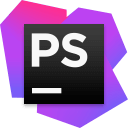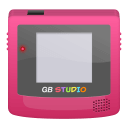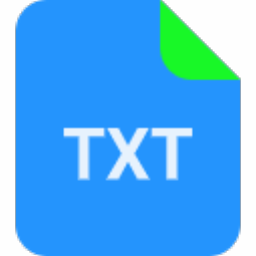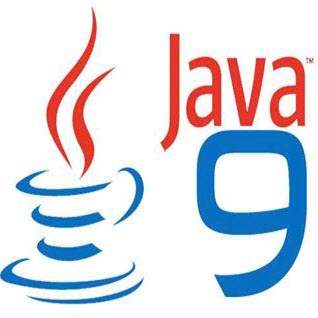ZeroBrane Studio是一个轻量级的Lua IDE,拥有代码提示、语法高亮、远程调试、代码分析、调试等功能。支持多个 Lua 引擎 (LuaJIT,Moai, Gideros, Corona, Marmalade Quick, MobileLua, GSL-shell, and others).它是基于Estrela Editor.用Lua开发的,用到了lua socket、WxWidget等。 可以很好的结合cocos2d-x做游戏开发。调试、代码提示都可以完美的解决。
lua IDE ZeroBrane Studio配置:
editor.fontname = "Menlo"
editor.showfncall = false
editor.tabwidth = 4
editor.usetabs = true
editor.autotabs = true
editor.usewrap = false
editor.smartindent = true
local G = ...
styles = G.loadfile('cfg/tomorrow.lua')('Zenburn')
styleoutshell = styles
ZeroBrane Studio快捷键 :
alt + shift +鼠标 ,可以块选中文本。
F12 折叠/展开 所有
F5 调试运行 点击第二次 将跳转到第一个断点处
F10 单步执行
shift +F10 单步执行,不进入函数体
Ctrl + F10 跳出停止调试
f6 运行程序不调试
ctrl + f6 不停循环运行程序不调试
f7 汇编代码
ctrl +f7 分析代码
在ZeroBrane Studio中进行断点调试
2013-12-13 更新:由于quick作者修改了调试方式,可能此处介绍的方法不再有效,请参阅 一、 Quick官方提供的调试方式
ZeroBrane Studio是一个用Lua写成的跨平台Lua IDE。界面使用 wxLua 实现。
1. 调试模块
ZeroBrane Studio 使用 modbdebug 模块(位于 [ZeroBrane]/lualibs/mobdebug/mobdebug.lua) 实现调试支持。为了让项目找到这个模块,我采用最简单的方法,将该模块复制进入 coinflip 的 scripts 文件夹。
若不希望这样粗暴,可采用另外两种方法,参考: Remote debugging
2. require mobdebug
在 coinflip/scripts/main.lua 的第一行加入下面的代码,让项目启动调试支持。
require("mobdebug").start()
3. 启动调试服务器
在 ZeroBrane Studio 中选择 Project->Start Debugger Server 命令。如果该命令是灰色的,说明调试服务器已经启动了。
4. 加断点
编辑 game.lua 文件,在32行 game.enterChooseLevelScene() 处选择 Project -> Toggle BreakPoint 加入断点。
5. 启动 quick-player
在 quick-player 中启动 coinflip 项目,ZeroBrane Studio 会自动停在 main.lua 中。按 Project -> Continue 继续运行,游戏界面出现。
单击游戏中的 “Start” 按钮,调试停止在 game.lua 中的断点处。如下图所示:

查看大图
6. 进入源码调试
若要进入框架内部调试,可以取消 main.lua 中的CCLuaLoadChunksFromZip("res/framework_precompiled.zip") 调用,然后将 [quick-cocos2d-x]/framework 复制的 coinflip/scripts/ 文件夹,这样在调试的时候,就可以进入框架内部了。如下图所示:

特性:
完全采用 Lua 编写,定制容易
体积小、可移植和跨平台支持 (Windows, Mac OSX, and Linux).
函数、关键字和自定义 API 的自动完成
交互式控制台可直接测试代码片段,支持本地和远程执行
提供本地和远程调试器,支持 Lua 5.1, Lua 5.2, Lua 5.3, LuaJIT, 和 其他 Lua 引擎
Live coding with Lua, LÖVE, Gideros, Moai, Corona SDK, GSL-shell, and other engines.
函数轮廓
模糊搜索 Go To File, Go To Symbol, 和 Insert Library Function.
多种扩展当前功能的方法:
specs (spec/): specifications for file syntax, lexer, and keywords;
apis (api/): descriptions for code completion and tooltips;
interpreters (interpreters/): components for setting debugging and run-time project environment;
packages (packages/): plugins that provide additional functionality;
config (cfg/): settings for styles, color themes, and other preferences;
translations (cfg/i18n/): translations of the menus and messages to other languages;
tools (tools/): additional tools.






















 大小: 450M
大小: 450M

 西门子S7-200 PLC编程软件V4.0.9.26 免费版
西门子S7-200 PLC编程软件V4.0.9.26 免费版  JDK 8(Java SE Development Kit)8u291 64位版
JDK 8(Java SE Development Kit)8u291 64位版  Keil C51V9.00 uVision4破解版
Keil C51V9.00 uVision4破解版  eclipse标准版(Eclipse Classic)4.4.2 官方中文版
eclipse标准版(Eclipse Classic)4.4.2 官方中文版  Java SE Development Kit(JDK6)6u43 多国语言版
Java SE Development Kit(JDK6)6u43 多国语言版  易语言33个皮肤模块绿色版
易语言33个皮肤模块绿色版  STC单片机ISP下载编程软件v6.85i 官方最新版
STC单片机ISP下载编程软件v6.85i 官方最新版  易语言5.90精简版
易语言5.90精简版  lingoV14.0 绿色中文版
lingoV14.0 绿色中文版  AutoIt(AU3)v3.3.14.2 汉化版
AutoIt(AU3)v3.3.14.2 汉化版  派森(Python)v2.7.18 官方正式版【x86|x64】
派森(Python)v2.7.18 官方正式版【x86|x64】  jdk99.0.4 官方最新版
jdk99.0.4 官方最新版  VBScript编辑器(VbsEdit)V5.2.4.0 汉化绿色特别版
VBScript编辑器(VbsEdit)V5.2.4.0 汉化绿色特别版  派森Python3.6.3 Final 官方最新版
派森Python3.6.3 Final 官方最新版  Delphi77.0 Build 8.1企业版龙卷风集成Update1
Delphi77.0 Build 8.1企业版龙卷风集成Update1  Git for Windows64位v2.15.1最新汉化版
Git for Windows64位v2.15.1最新汉化版  pyscripter x642.5.3 官方最新版
pyscripter x642.5.3 官方最新版  Delphi 7(集成控件)v7.0Build8.1企业版龙卷风集成Update1
Delphi 7(集成控件)v7.0Build8.1企业版龙卷风集成Update1  visual studio emulator for androidv1.1.622 官方最新版
visual studio emulator for androidv1.1.622 官方最新版